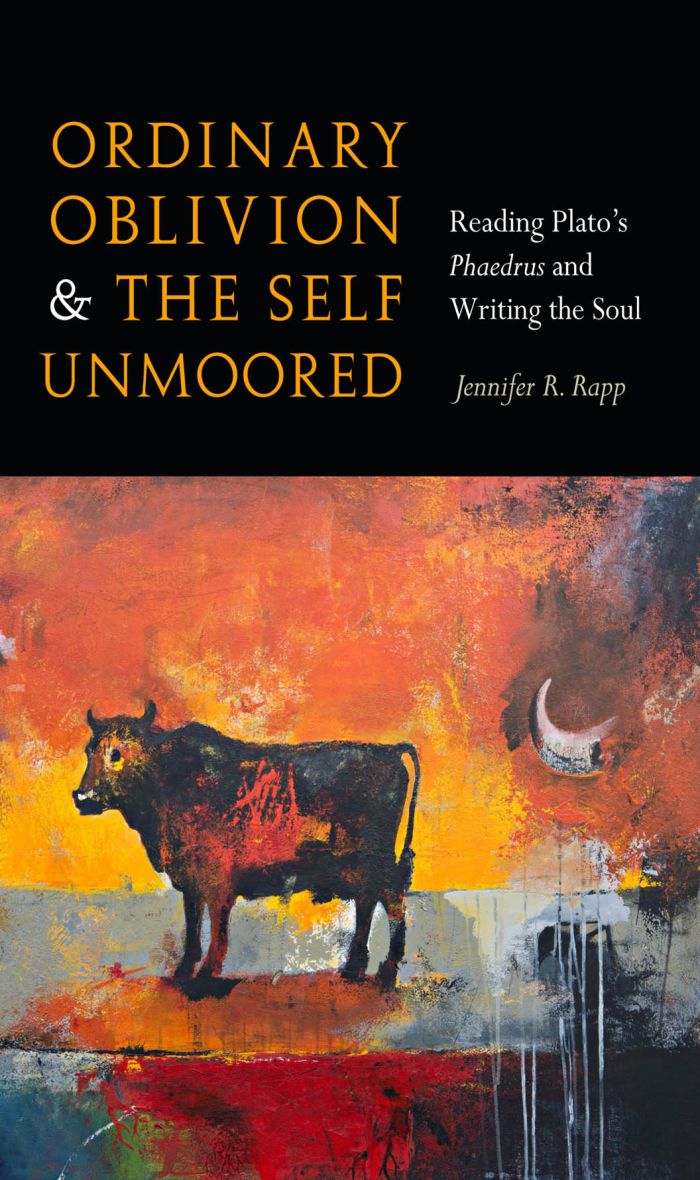Ordinary Oblivion and the Self Unmoored
Reading Plato’s Phaedrus and Writing the Soul

This book can be opened with

Rapp begins with a question posed by the poet Theodore Roethke: “Should we say that the self, once perceived, becomes a soul?” Through her examination of Plato’s Phaedrus and her insights about the place of forgetting in a life, Rapp answers Roethke’s query with a resounding Yes. In so doing, Rapp reimagines the Phaedrus, interprets anew Plato’s relevance to contemporary life, and offers an innovative account of forgetting as a fertile fragility constitutive of humanity.
Drawing upon poetry and comparisons with other ancient Greek and Daoist texts, Rapp brings to light overlooked features of the Phaedrus, disrupts longstanding interpretations of Plato as the facile champion of memory, and offers new lines of sight onto (and from) his corpus. Her attention to the Phaedrus and her meditative apprehension of the permeable character of human life leave our understanding of both Plato and forgetting inescapably altered. Unsettle everything you think you know about Plato, suspend the twentieth-century entreaty to “Never forget,” and behold here a new mode of critical reflection in which textual study and humanistic inquiry commingle to expansive effect.
"Rapp's ambitious and exciting work plumbs the depths of Plato's text with verve and sings with a voice as poetic as Plato's own." --Highly Recommended——Choice Magazine
“This is an extraordinarily creative, and lyrically written, meditation on the philosophical meaning and experiential richness of what is, by any measure, one of Plato’s most creative and lyrical dialogues. Countering the all too comon belief that Plato was strictly hostile to poetry and poets, an idea the *Phaedrus* belies, Rapp weaves contemporary poetic voices into her meditation on this preeminently Greek philosophical vision. The result is a tapesty of exceptional beauty and insight.”

